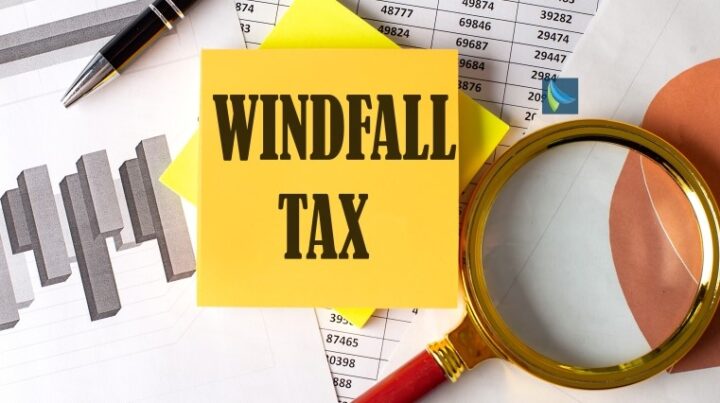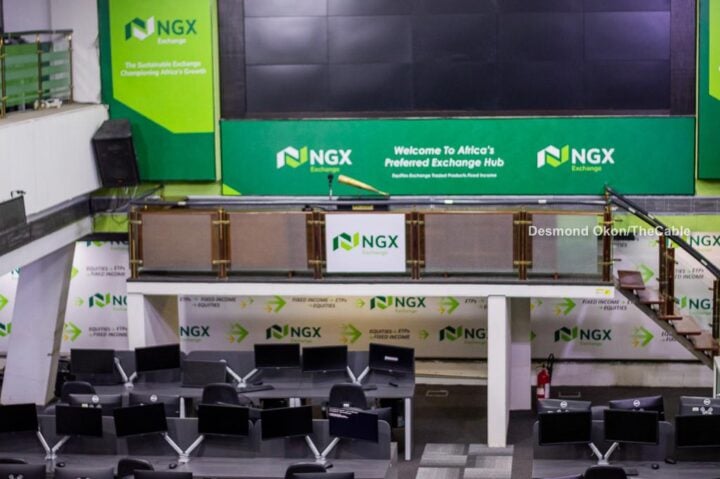BY KOLADE OJO
Policymakers, economic thinkers, analysts and varied commentators irrespective of their ideological leanings and divides generally agree on a number of postulations, namely that Nigeria needs to ramp up its revenue-generating potentials, prioritise infrastructural development to stimulate productivity, and galvanise the real sectors of the economy including agriculture, manufacturing, construction, wholesale and retail as well services to support long-term growth. What often causes quite a bit of dissension though is the best approach or combination of methods to achieve these desired, if not desperately needed, outcomes.
Nigerian banks are currently undergoing a significant recapitalisation process aimed at strengthening their financial stability and enhancing their capacity to support economic growth. For savvy investors, this represents a strategic opportunity to participate in an equity capital-raising exercise with the potential for substantial long-term returns. While the backdrop of pockets of protests in certain parts of the country, windfall levies on banks, rising inflation, and a weak local currency may seem daunting, these very circumstances underscore the critical importance of a robust and well-capitalised banking system.
Dimensioning the current challenges and opportunities
Advertisement
Protests and socio-political unrest often signal underlying economic issues that need addressing. These movements, while disruptive, often bring to light the grievances and demands of the populace and can serve as catalysts for necessary reforms and greater transparency. By engaging in open dialogue with protestors and incorporating their feedback into policy-making, governments can build trust and demonstrate a genuine commitment to serving their citizens.
As seen with President Bola Ahmed Tinubu’s recent address, this responsiveness not only diffuses tensions but also fosters a more inclusive and participatory political environment, ultimately leading to more sustainable and equitable socio-economic development.
The introduction of windfall levies on banks, although initially perceived as a financial burden, aims to redistribute unexpected gains in a way that can stabilise the economy and support social programs, thereby fostering a more equitable financial landscape. To boot, rising inflation and the devaluation of the Naira do pose significant challenges, yet they also highlight the need for a resilient banking sector capable of withstanding economic volatility.
Advertisement
Inflation can erode savings and reduce the purchasing power of consumers, while a weaker Naira weighs on investments and trade. However, these factors also present a unique opportunity for banks to innovate, adapt, and strengthen their financial frameworks.
Windfall levy amid banks recapitalisation: Could we be over-analysing?
The windfall levy, though not yet effective, has stirred considerable debate. No doubt, there will be significant operational implications for banks in implementing the levy. From tracking unrealised exchange differences and reconciling the affected sums together with auditors and tax authorities, quite a bit of engagements will come into play. Moreover, the recent FIRS circular dated June 24, 2024 and titled “Tax Treatment of Foreign Exchange Transactions” indicates that this will be an area of increased interest for the tax authority.
It is, therefore, understandable if this creates a measure of uncertainty for investors around their view of the fiscal policy environment. Many have criticised the apparent lack of industry consultation on the decision to impose the windfall levy, saying the announcement was premature and that such a levy singling out the banking sector amid ongoing recapitalisation efforts is rather misplaced.
Advertisement
However, it is crucial to recognise that the banking sector in Nigeria is built on a foundation of resilience and adaptability. Nigerian banks have a proven track record of navigating complex challenges and emerging stronger. Moreover, the sector’s ongoing recapitalisation efforts will ensure that robust capital buffers are in place, positioning banks to withstand economic pressures and continue supporting growth. This resilience, coupled with the proactive reforms implemented by the government, certainly sets the stage for a more stable and prosperous banking environment.
Nigeria is not an isolated case in legislating for a windfall tax or levy on businesses or sectors that have benefited from certain “unexpected” and favourable economic conditions. For context, the Italian “Windfall Tax for Banks” at 40% for fiscal 2023 resulted from a government rate hike, which triggered higher Net Interest Margins (NIM) and yielded record profits for banks. The windfall tax was implemented as the cost of loans soared while lenders held off paying more on deposits. Back in 1977, the UK government imposed the “North Sea Oil Windfall” on the extraordinary profits of privatised utilities, particularly targeting the oil sector. This tax helped generate significant revenue, which was then used to fund social programs and reduce public debt.
Similarly, the 25% energy profits levy in the United Kingdom was imposed as a windfall tax on oil and gas companies that profited from the increase in crude oil prices due to rising demand after COVID-19 restrictions and the impact of Russia’s invasion of Ukraine to compensate households that faced higher energy costs. In 2010, Australia implemented a windfall levy on the mining sector’s super profits to ensure that the broader society benefited from the natural resource boom. The revenue generated was invested in infrastructure projects, education, and health services.
Norway’s petroleum tax system model involves taxing the super profits from oil and gas exploration at a high rate, which has allowed the country to amass a substantial sovereign wealth fund. This fund supports public welfare programs and ensures economic stability. The transparency and efficiency of Norway’s taxation system have made it a benchmark for other resource-rich nations.
Advertisement
The perception of the windfall levy as a punitive measure overlooks the broader economic benefits it is designed to achieve. Rather than unduly penalising banks, the levy aims to redistribute extraordinary profits in a manner that supports the overall economy. By harnessing windfall gains, the government can invest in critical areas that spur economic growth, thereby creating a more favourable operating environment for all businesses, including the banking sector players. At this point, all stakeholders including the investors and analysts community would be best served if engagements were to focus on avoiding the possible drawbacks should the windfall levy be poorly executed or facilitating mechanisms to ensure the proceeds are not mismanaged.
Investing in Nigerian banks: A strategic opportunity amid ongoing reforms
Advertisement
Despite current challenges, Nigeria’s economy has significant growth potential, driven by its large and youthful population, rich natural resources, and strategic position in Africa. As the economy recovers, well-capitalised banks will be at the forefront of financing new ventures, infrastructure projects, and consumer lending, positioning them for robust growth. Bank recapitalisation, therefore, is a strategic response to prevailing economic pressures.
By increasing the capital base of banks, we are not only ensuring their stability but also enhancing their capacity to support economic growth. Well-capitalised banks are better positioned to absorb shocks, manage risks, and lend to businesses and consumers, which in turn stimulates economic activity. Recapitalised banks will have greater lending capacity, enabling them to support businesses and consumers more effectively. This expansion in credit availability can drive economic activity and profitability for banks, translating into higher returns for investors.
Advertisement
Altogether, there is no gainsaying the attractive valuation and potential returns offered by Nigerian equities. The ongoing economic challenges and currency devaluation have led to the undervaluation of many Nigerian banks’ stocks. Investing during this period of low valuations presents an opportunity to acquire equity at a discount, with the potential for significant capital appreciation as the banks’ performance improves. Nigerian banks are not only capable of navigating the current pressures including the windfall levy but are also poised to thrive. The combination of government reforms, enhanced transparency, and the sector’s inherent resilience makes this an opportune moment for investors to participate in Nigeria’s promising economic future.
Kolade Ojo is a financial and tax expert
Advertisement
Views expressed by contributors are strictly personal and not of TheCable.
Add a comment










